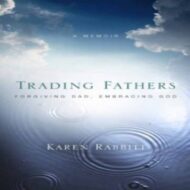Over my computer is a watercolor of the house across the
street. My late mother-in-law, Libby, painted it in her old age, from a photo
I’d taken one golden fall evening. A flag flutters in the shadows above a
picket fence. The white house is trimmed with red striped awnings over two
small front windows.
She entered it in a regional amateur art contest. She often
won ribbons in these competitions, but this painting was unadorned when we
picked it up. We sat down, waiting for the judge, who was giving feedback. When
she approached us, Libby asked, “What did you think of my work?”
Sitting down next to us, she studied the canvas. “This line
of white is sharp,” she said, pointing to the house’s edge, clearly defined
against the darker background.
Libby said, “Of course it’s sharp, it’s the edge of the
house.”
She had taken up watercolor after she retired from teaching at
70. She had a library of technique books and logged many class hours. At 80
years old, Libby knew what she knew and recognized nonsense when she heard it.
I often defer to perceived experts. Libby didn’t. She saw
the nonsense masquerading as wisdom. Nonsense permeates our society. Young
girls exposing their bodies in the name of fashion. Mortgaging our
grandchildren’s future in our consumerist culture. Encouraging an “eat, drink,
and be merry” ethos in our media. We need, like Libby, to “know what we know”
so we can stand against the nonsense.
Father, always,
continually, and forever, we need wisdom.
